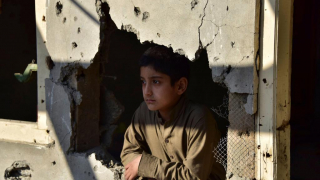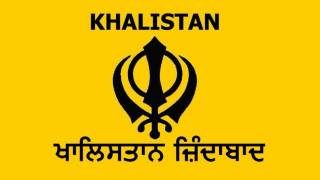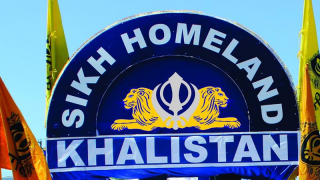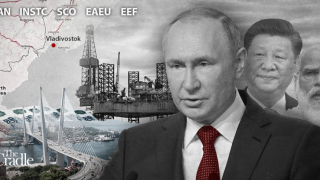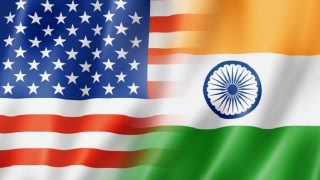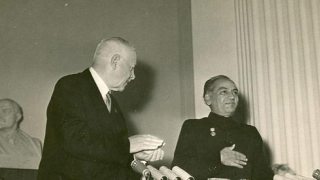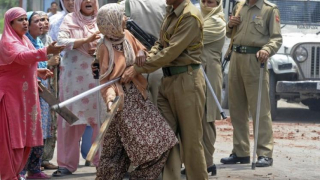India Opened A Pandora's Box Of Domestic Political Problems With Kashmir
India thought that its "Israeli"-like unilateral move in Kashmir earlier this month would quell separatist sentiment in the country once and for all, but it actually inadvertently opened up a Pandora's Box of domestic political problems instead, specifically in Khalistan and the Northeast.
India's "Israeli"-like unilateral move in Kashmir earlier this month stripped the region of its relative "autonomy" and placed it under an indefinite curfew enforced by the over 700,000 troops militarily occupying the disputed region, which New Delhi expected would quell separatist sentiment in the country once and for all. This was a strategic blunder, as Pakistani Prime Minister Khan recently characterized it, in more ways than one since it actually inadvertently opened up a Pandora's Box of domestic political problems instead, specifically in Khalistan and the Northeast. The Sikhs For Justice (SFJ), the purely peaceful organization that's organizing the Referendum 2020 campaign for the independence of Indian Punjab, have since allied with the Kashmiri diaspora and engaged in symbolically raising both of their self-determination movements' flags on 15 August, which is supposed to be India's "Independence Day" but isn't recognized as such by those two groups. Kashmiri and Khalistani supporters even attracted international media attention from Russia's Sputnik for their demonstrations in London's Trafalgar Square on that day, thus dealing a powerful blow to the Indian state's efforts to suppress any positive coverage of their rallies.
It's not just self-determination movements along India's western frontier that were energized to reassert their UN-enshrined rights after New Delhi's de-facto annexation of Kashmir, but also a couple along its eastern one as well, specifically in Manipur and Nagaland. Activists in both states raised their national flags in defiance of the authorities on 14 August, when activists commemorate their states' official independence from the UK before they were coercively incorporated into India shortly thereafter. The President of the Naga Students' Federation that organized his region's flag-raising rallies, however, denied that his organization intended to send any political message, telling The Hindu that "The NSF has been observing the day not to show that the Nagas are against India but to celebrate our identity, culture, history, and rights." Whatever the true intent may actually be, it was nevertheless a provocative action to take since Naga separatists are currently involved in secret negotiations with the government that have stalled in recent years over their demand for a separate flag and constitution in exchange for a lasting peace.
Indian-Occupied Kashmir used to have both of these symbolic elements of statehood until earlier this month, so it can be said that the Nagas might have been purposely pushing the limit to see what they could get away with from the authorities. India's in a tough spot, however, since it knows that any forceful Kashmir-like crackdown could lead to the instantaneous collapse of the peace talks and a resumption of the militant self-determination struggle in this historically restive part of the country, though standing down and letting them assert their national identity in such a way also signals weakness on the state's part too. Nevertheless, it was the second option that the authorities wisely chose to do, at least for the time being, which proves that the original pretext for stripping Kashmir of its relative "autonomy" (i.e. that any signals of separate statehood are equal to "terrorism") was disingenuous since double standards are clearly being applied in the Nagas' case out of sensitive "national security" concerns. As long as the Naga separatists continue to negotiate with the government, their people are comparatively safe from suffering a Kashmir-like crackdown, though that might all change the moment that the peace talks collapse.
Another self-determination movement that deserves to be touched upon in this context is the struggle for Gorkhaland being pursued by the Nepalis in northern West Bengal. Unlike the Kashmiris, Khalistanis, Manipuris, Nagas, and at least a dozen other lesser-known movements, this one isn't advocating for outright independence but for its own separate state within a unified India. Their cause goes back over a century but heated up once again in late 2017, coinciding with the Chinese-Indian drama over the Donglang Plateau and showing how Kathmandu could have emerged as the kingmaker in that entire affair had it mustered the political will to do so at that time. Although it didn't, the country's shadow looms large over that strategic region in India's so-called "chicken's neck" connecting it to the "Seven Sisters", which might explain why Home Minister Amit Shah made a provocative outreach to the movement earlier this month as part of what could be an effort to preemptively get on their good side prior to another possible border clash with China and also as punishment against the ruling TMC of West Bengal that's one of the BJP's most outspoken domestic critics.
Taken together, the reassertion of Kashmiri, Khalistani, Manipuri, and Naga nationalism in the wake of India's "Israeli"-like unilateral moves earlier this month in the first-mentioned of these four totally failed in its objective to unify the country because it actually ended up provoking its further division. Although each cause is separate and has their own unique dynamics, the overall trend is that minority movements in India almost counterintuitively feel emboldened by New Delhi's militant oppression of the Kashmiris and are defiantly standing up for their rights in the face of the national government's tyrannical efforts to suppress one of their fellow self-determination movements. That doesn't mean that each one is allied with the other, but just that they're all nevertheless connected in an indirect way because of their similar standing relative to the Indian state, even among those like the Gorkhas who don't want independence but merely their own separate state in a unified India. The Pandora's Box of domestic political problems that India inadvertently opened up with its latest actions in Kashmir will never close again because it forever changed the nature of relations between the people and the state, and the latter's many ethno-religious minorities and the increasingly radical Hindu majority.
______
DISCLAIMER: The author writes for this publication in a private capacity which is unrepresentative of anyone or any organization except for his own personal views. Nothing written by the author should ever be conflated with the editorial views or official positions of any other media outlet or institution.



